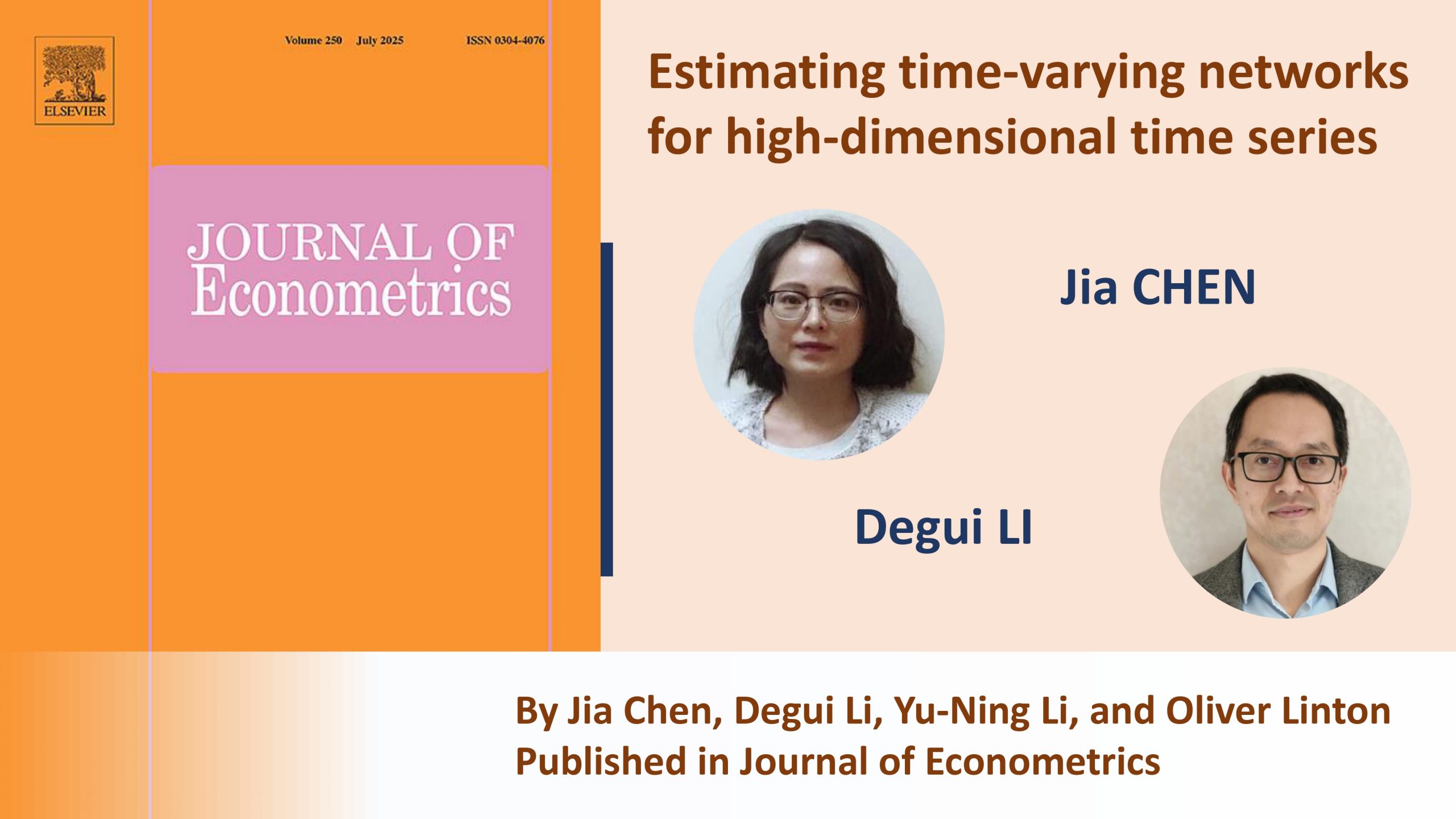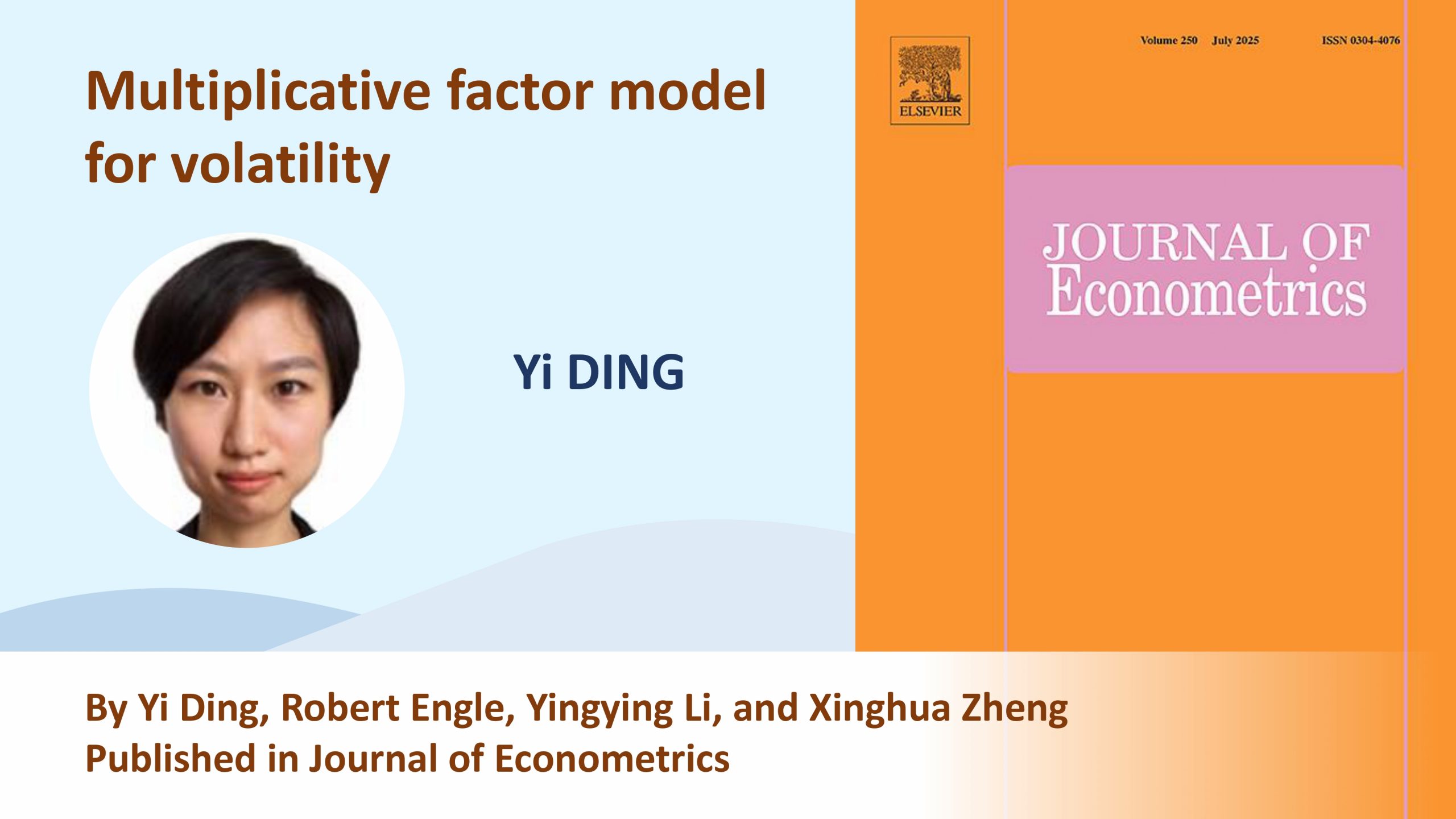

Recently, Prof. Degui Li, Distinguished Professor in Business Economics of the Faculty of Business Administration (FBA), and Prof. Jia Chen, Professor in Economics of the Faculty of Social Sciences (FSS), along with Prof. Yi Ding, Assistant Professor in Business Economics of FBA at the University of Macau (UM), have published research articles in the internationally renowned journal, Journal of Econometrics (ABS4). Prof. Degui Li is currently the team leader of APAEM Financial Econometrics team, while Prof. Jia Chen and Prof. Yi Ding are members of the APAEM Financial Econometrics team.
The research team led by Prof. Jia Chen and Prof. Degui Li, in collaboration with Dr. Yu-Ning Li from the University of York and Prof. Oliver Linton from the University of Cambridge, jointly published an article titled “Estimating Time-Varying Networks for High-Dimensional Time Series.”
Paper abstract:
We explore time-varying networks for high-dimensional locally stationary time series, using the large VAR model framework with both the transition and (error) precision matrices evolving smoothly over time. Two types of time-varying graphs are investigated: one containing directed edges of Granger causality linkages, and the other containing undirected edges of partial correlation linkages. Under the sparse structural assumption, we propose a penalised local linear method with time-varying weighted group LASSO to jointly estimate the transition matrices and identify their significant entries, and a time-varying CLIME method to estimate the precision matrices. The estimated transition and precision matrices are then used to determine the time-varying network structures. Under some mild conditions, we derive the theoretical properties of the proposed estimates including the consistency and oracle properties. In addition, we extend the methodology and theory to cover highly-correlated large-scale time series, for which the sparsity assumption becomes invalid and we allow for common factors before estimating the factor-adjusted time-varying networks. We provide extensive simulation studies and an empirical application to a large U.S. macroeconomic dataset to illustrate the finite-sample performance of our methods.
For details: https://doi.org/10.1016/j.jeconom.2024.105941
Meanwhile, Prof. Yi Ding collaborated with Prof. Robert Engle from New York University, as well as Prof. Yingying Li and Prof. Xinghua Zheng from the Hong Kong University of Science and Technology, and published a research article titled “Multiplicative Factor Model for Volatility.”
Paper abstract:
Facilitated with high-frequency observations, we introduce a remarkably parsimonious one-factor volatility model that offers a novel perspective for comprehending daily volatilities of a large number of stocks. Specifically, we propose a multiplicative volatility factor (MVF) model, where stock daily variance is represented by a common variance factor and a multiplicative idiosyncratic component. We demonstrate compelling empirical evidence supporting our model and provide statistical properties for two simple estimation methods. The MVF model reflects important properties of volatilities, applies to both individual stocks and portfolios, can be easily estimated, and leads to exceptional predictive performance in both US stocks and global equity indices.
For details: https://doi.org/10.1016/j.jeconom.2025.105959
Source: Faculty of Business Administration, University of Macau

